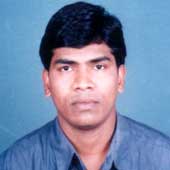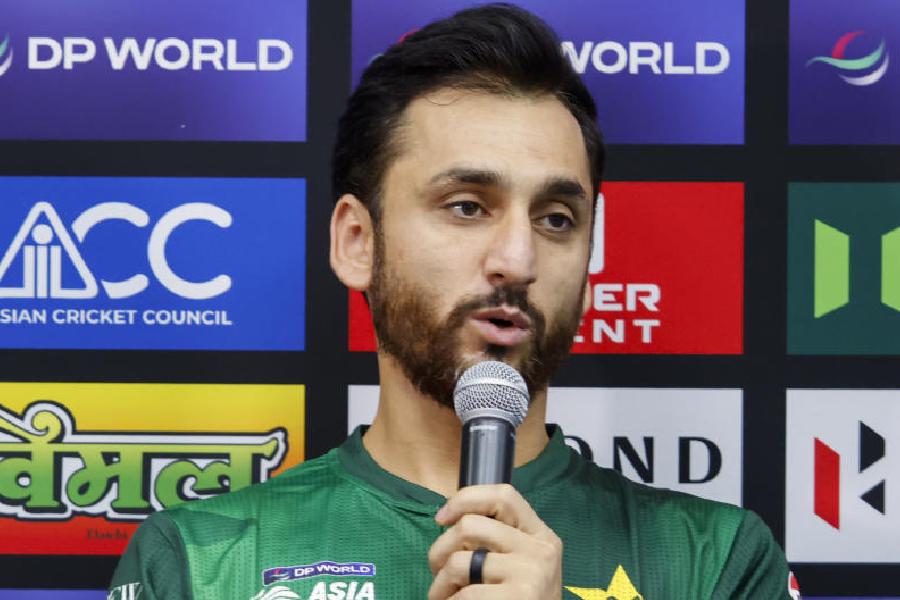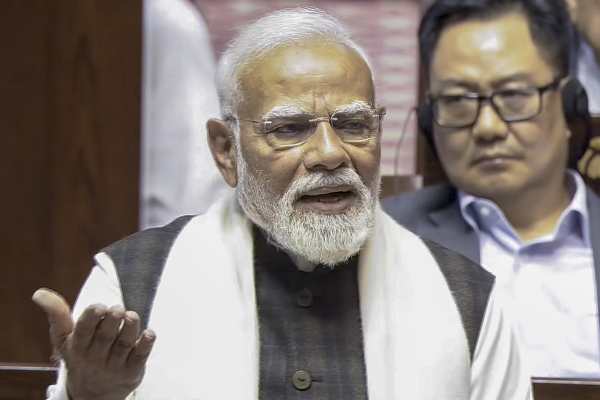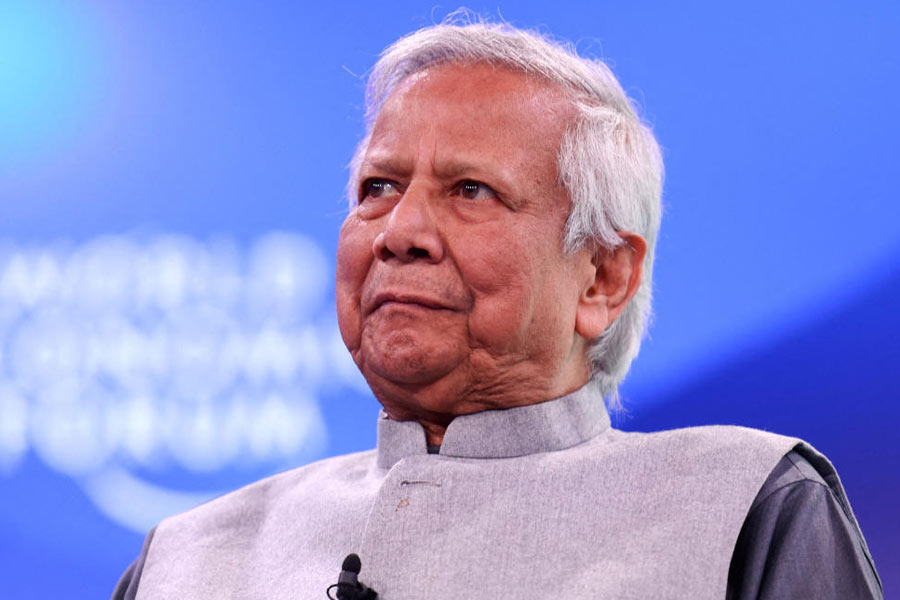Jan. 30: Read yourself if you want your child to read. If there was one message that shone through the 75 sessions of Tata Steel Kolkata Literary Meet (Kalam), held over five days from January 25, in association with The Telegraph and co-hosted by the Victoria Memorial Hall, it was this.
The importance of creating a reading environment at home was borne out in three sessions particularly, which sought to identify a writing gene between three pairs of parent-child writers.
The Tharoors
On Day 2, the dapper writer-MP Shashi Tharoor came on stage with son Kanishk Tharoor, who has published a collection of short stories, Swimmer Among The Stars, and is working on a novel currently. Shashi, of course, has an impressive line-up, from The Great Indian Novel 27 years ago to An Era of Darkness last month.
Kanishk's twin, Ishaan, incidentally, also writes. He is a journalist.
"I owe a lot to my father and my mother (Tilottama Mukherji), who surrounded our childhood with books. We were raised in houses that were always overflowing with books and overflowing with the activity of reading and writing. We had the great privilege of observing the activity of reading and writing around us and it seemed like the logical thing to do," Kanishk said about his choice of profession.
PASSING OVER THE PEN

He added that his father's "interest in fiction, in exploring political and historical themes through the imaginative style of fiction" was something that he too had imbibed.
"Many of the stories in my collection are engaging with political and historical subjects. I think in part because those are the things that deeply interest me and I use historical fiction to get there."
Shashi, asked about the proverbial writing gene, quipped: "I think the gene, if there is any, has improved... it's proof of the theory of evolution!" He still remembers his boys running around his first book launch, in New York. "Books, writing, launches... they saw it as something people did. It was a part of their upbringing."
Speaking of this houseful of books and of people who were always engaged in reading and writing, he said, "It was just for us (Shashi and Tilottama) an important way of being that we wanted them to imbibe. And I think they've taken it to a greater level of ability and competence than we could have dared hope."
The Desais
The next day, Anita Desai and Kiran Desai were in conversation, exploring whether there was such a thing as an inheritance of a life in literature.
Kiran, who won the Booker for her second novel, The Inheritance of Loss, in 2006, and is currently writing her third, spoke beautifully about growing up with a mother (a Sahitya Akademi Award-winning writer with three Booker nominations and at least 17 books to her name) who had a "great silence".
"I was always conscious that my mother was different, that she had a great silence. And a quietness that comes from a writing life. Also, of course, she vanished every morning, while we were in school and she wrote every day, with extraordinary discipline it must have been, to have produced all of that work just working in the morning hours."
Kiran said the "rhythm of a writing life" was deeply a part of the growing up of her three siblings and her. "Very many years later, when I began to write, I understood what I had been experiencing was that extraordinary discipline of being a writer. I feel lucky because I see with so many that part of becoming a writer is learning that discipline, learning that rhythm, and getting to be deeply familiar with that rhythm, and it's essential that the rhythm overtakes your life... I didn't have to struggle to find that."
Anita, who produced novel after novel even as she raised her brood of four, revealed how she adopted her children's school schedule to write, and thought nothing of it.
"I trained myself to write when they left home and to put away the books and papers when they returned. And after that I enjoyed being with them. And because the time was limited and I knew I couldn't overstep that, I think I made good use of those hours. People often ask me how could you write when there were small children at home. The fact is, I wrote much more in those years than what I wrote in the years when I had far more time to myself."
Anita spoke about her loneliness as a young writer in Old Delhi and how she found a kindred soul in Ruth Prawer Jhabvala, the Booker-winning novelist and Oscar-winning screenwriter.
"She used to wheel her babies in a stroller past our house and I discovered she was a writer too.... She and her husband were so generous with their time and their sympathy. I would borrow Ruth's books... at last I had somebody I could talk to about books!"
By contrast, Kiran feels part of a community of writers in New York, where she lives.
"Over the years I have removed myself more and more from the New York publishing world. It's too big to be able to write seriously and authentically. But I should also say about South Asian writers in Brooklyn and in New York... I have very, very deep friendships with very many of them. It is a writing experience... many of us are working out of the same experience, many of us are of the same age... we've gone through many things in life together, we have a camaraderie," she said,
"It started when Amitav Ghosh used to have us over. My friends in New York are Suketu Mehta, Mohsin Hamid, Siddhartha Mukherjee, Siddharth Dube...." she later told Metro.
The Dev Sens
On the final day, writer Nabaneeta Dev Sen shared with the audience a beautiful gift from her daughter Nandana - a book with 25 poems by Nabaneeta in Bengali and their English translations by Nandana, titled Make Up Your Mind.
Nandana, a children's writer along with being an actress and child rights activist, said it was her mother who made her fall in love with poetry.
"And not just through her own poetry. She's the one who introduced me to poetry, whether it is Rabindranath Tagore's poetry, whether it is Bob Dylan's songs or the poetry of Pablo Neruda," Nandana said.
Nabaneeta, in turn credited her own mother, Radharani Devi, who wrote under the pen name Aparajita, for their gift with words.
"Ma made me whatever I am. She was self-educated, and she taught me through school. And I am so glad she was there when the children (Nandana and Antara, a magazine editor) grew up. She was brave and original in her ideas," Nabaneeta said.
The previous generation, in fact, featured in the previous two sessions too. While Shashi mentioned his late father Chandran Tharoor's obsessive love for words and word games, Anita spoke about her German mother Toni Nime. "My mother spoke of her lost home (in Germany) a great deal. She was a wonderful storyteller. She could make everything so alive and vivid that one could just adopt her memories as one's own."










